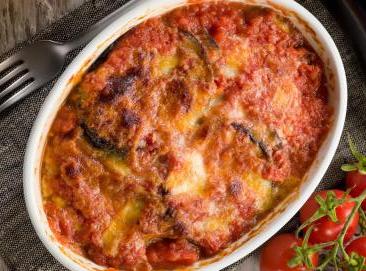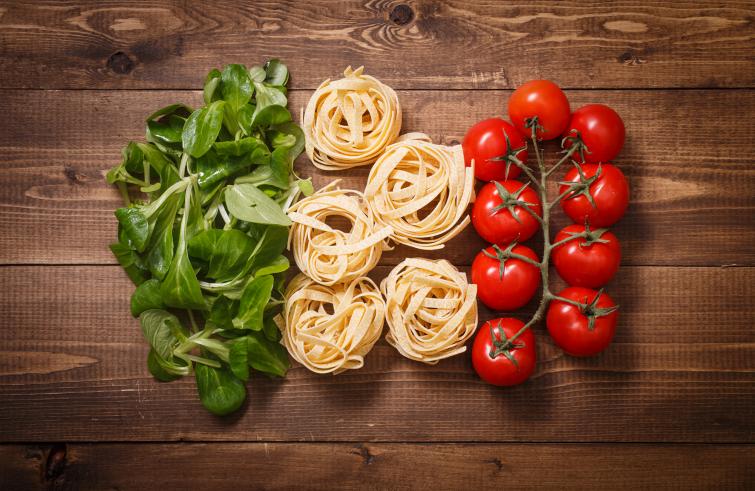This is a very well-known delicious Italian dish.
It’s perfect for any occasion. It can be tasted warm, but it’s wonderful also cold. You can bring it to a picnic too!

1 kg aubergines
700 g tomatoes
300 g mozzarella cheese
1 small onion
Parmesan cheese
Basil
Salt
Pepper
Olive oil
Oil for frying
Cut the aubergines into 0,5 cm slices and let them rest half an hour with some salt on. That will take off teir bitter part, leaving them sweeter.
Clean the aubergines from the salt and liquid formed during their rest.
Fry the aubergines in deep oil and then leave them to dry on absorbent paper.
In a pot, chop the onion and fry it in olive oil for 4-5 minutes, than add the tomato, basil, salt and pepper. Cook the tomato sauce for at least 20 minutes. The sauce must be very thick.
Dry mozzarella from its water and leave it to rest for a while, so it will lose more water.
Take a pan (like the one for lasagna).
Put a couple of spoons of tomato sauce in the bottom and spread it (so the aubergines won’t stick to the pan).
Put a layer of aubergines, some tomato sauce, some mozzarella and some grated parmesan cheese.
Go on making layers like this one until you finish the aubergines (or you fill the pan 😀 ).
Preheat the oven to 180°C and cook the melanzane alla parmigiana for almost 45 minutes.
Pay attention! Don’t use cheddar, emmenthal or similar. It can happen you find it with provola, but not with unconventional cheeses. Don’t slice garlic in the sauce.
If you want a lighter version of this dish, it’s not very traditional but you can use grilled aubergines.
I always say that, eaten the day after, melanzane alla parmigiana are even better! What do you think about it??

Thanks for sharing useful information!
Why use zaitun oil ?
In Italy we use olive oil almost always. Is one of the basis of mediterranean cooking. Its taste is delicate and nice, and it’s also healthier if you compare it to other kind of fats, as butter. When you cook sauces, for instance, it’s perfect.
When we deep fry food, we use other oils more suitable for frying, because they are more resistant to high temperatures.